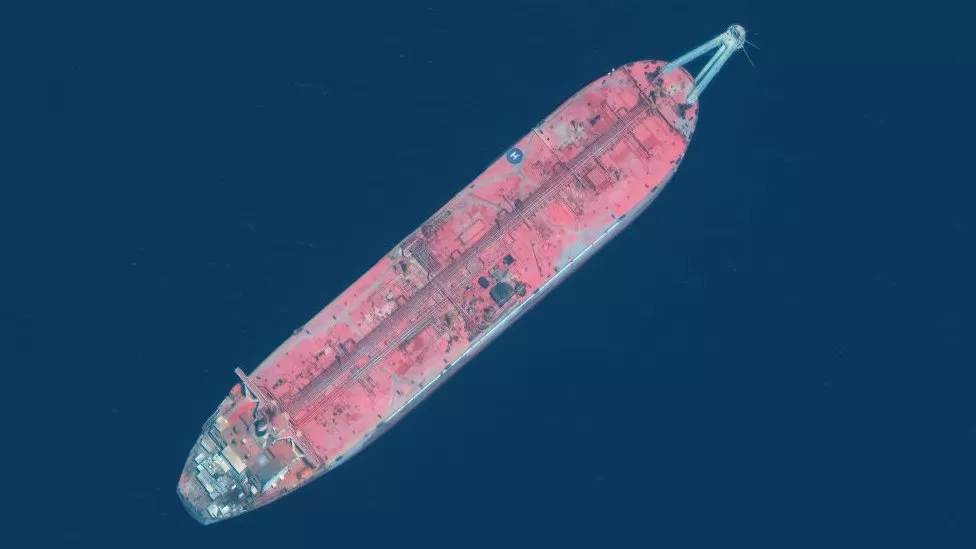The UN has purchased a huge ship that it hopes will prevent an environmental catastrophe off the coast of Yemen.
For years, more than a million barrels of crude oil have been sitting on a decaying supertanker in the Red Sea.
There are fears the vessel could soon break apart or explode, risking one of the worst oil spills in recent memory.
But on Thursday, the UN said it had purchased a crude carrier that would head to Yemen and remove the oil from the stricken ship.
“The purchase of this suitable vessel… marks the beginning of the operational phase of the plan to safely remove the oil and avoid the risk of an environmental and humanitarian disaster,” Achim Steiner from the UN Development Programme (UNDP) said, adding that it was a “major breakthrough”.
A UNDP statement said the ship – which it purchased from major tanker company Euronav – was undergoing routine maintenance in China and would arrive for the operation in early May.
“A major spill would devastate fishing communities on Yemen’s Red Sea coast, likely wiping out 200,000 livelihoods instantly. Whole communities would be exposed to life-threatening toxins. Highly polluted air would affect millions,” it said.
The organisation added that a potential oil spill could cost up to $20bn (£16.7bn) to clean up.
The UN had been searching for years for a solution and appealed for donations. The planned operation is estimated to cost $129m of which $75m has been received and another $20m has been pledged, it said.
The stranded ship – the FSO Safer – was left abandoned off the port of Hodeida after Yemen’s civil war broke out in 2015. It has not been serviced since.
It was constructed as a supertanker in 1976 and converted later into a floating storage for oil. It is anchored near the Ras Isa oil terminal, which is controlled by Yemen’s rebel Houthi movement.
The 376m (1,233ft) vessel holds an estimated 1.14m barrels of crude oil.
The Safer’s structural integrity has deteriorated significantly since maintenance operations were suspended in 2015, when the Houthis seized large parts of Yemen and a Saudi-led coalition intervened in support of the government. The ensuing conflict has reportedly killed more than 150,000 people and left more than 23 million in need of aid.
Mr Steiner told reporters on Thursday: “Let me be very clear – this is a risky operation and things could go wrong.” He added that it could still be suspended if they fail to raise enough funds.
